
How to implement Firebase Push notifications in Ionic 5 apps
1. Create a Firebase project and find Push options Go to Firebase and create your first project (or use an existing one). Your console should look like this Your Firebase projects all in one place

Ionic Push Notifications Science Viking Labs
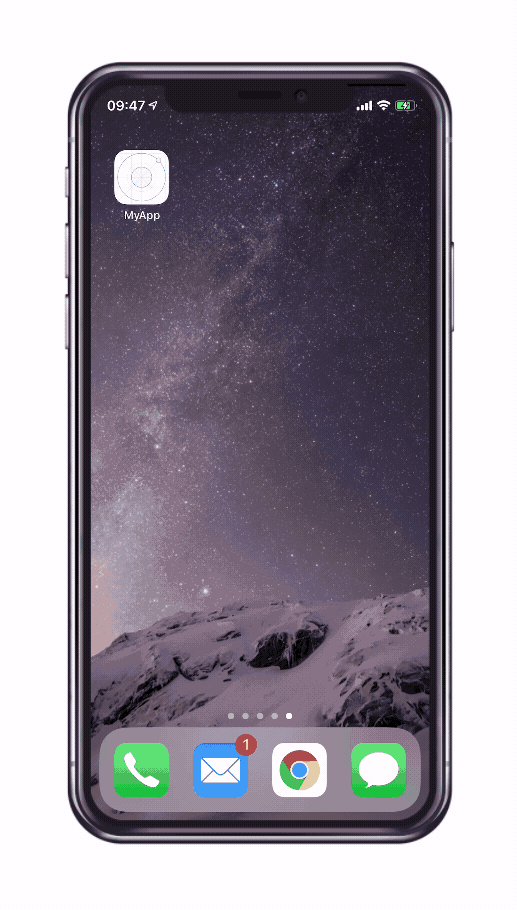
How to Send Push Notifications to Your Ionic 4 App With OneSignal Devdactic
There are also different ways to call the API of Firebase to create a push, one would be to use a tool like Postman or Insomnia. Simply set the authorization header of the call to the server key that you can grab from the the Cloud Messaging tab of your Firebase project: Authorization: key=
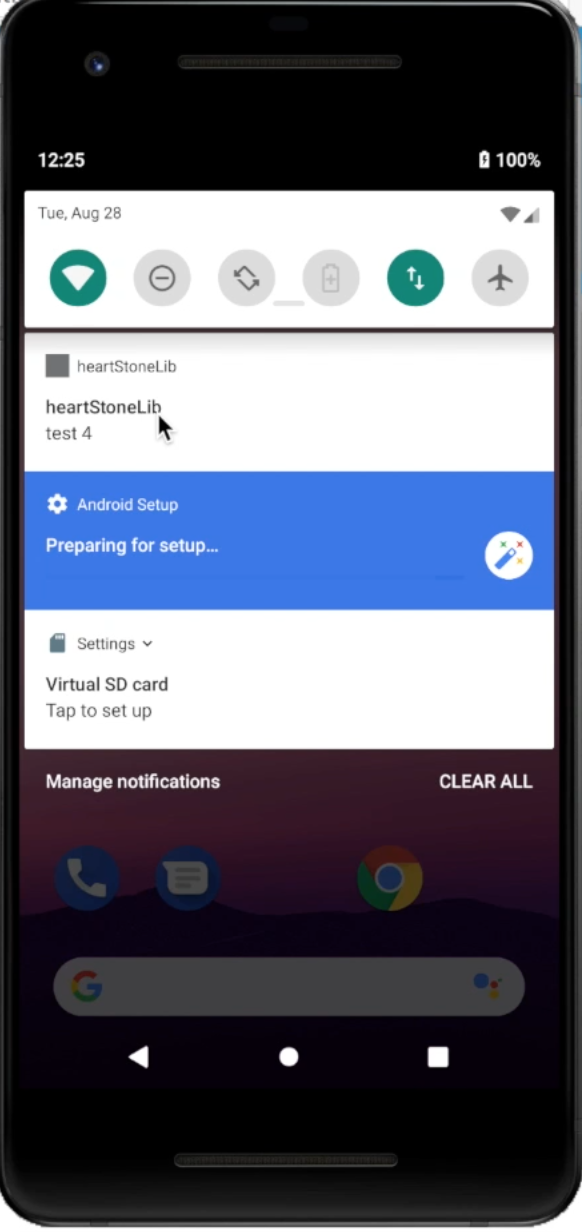
How to get push notifications working with Ionic 4 and Firebase
Working on an Ionic/React mobile app - 6.1.1; @capacitor/core 4.4. "Alpha" version of the app being distributed through test channels from the stores.. Is there any documentation on integrating push notifications into an Ionic/React app. All of the documentation, official or otherwise, is for Angular. The translation isn't completely.

Ionic 3 Send Push Notifications Using OneSignal YouTube
In summary, the implementation of notifications from Firebase using the Capacitor/Push-Notifications plugin adds a new level of interaction and engagement to your applications. Thanks to this.

How to Send Push Notifications to Your Ionic 4 App With OneSignal YouTube
Implementing Ionic Framework Push Notifications [Top 3 Ways] Using Firebase Using OneSignal Using WonderPush Push notifications are widely used on both web and mobile applications to deliver notifications. Push notifications are a great communication mechanism since they can be used to send notifications even when the application is closed.

Ionic 7 Firebase FCM Push Notification Tutorial with Example PositronX.io
Push notifications is one of the most important techniques to make our product or service more engage-able. They are something normal in native mobile application such as iOS and Android apps, when the application is closed users still received the notifications. Good news, we can achieve the same experience with Progressive Web Apps!
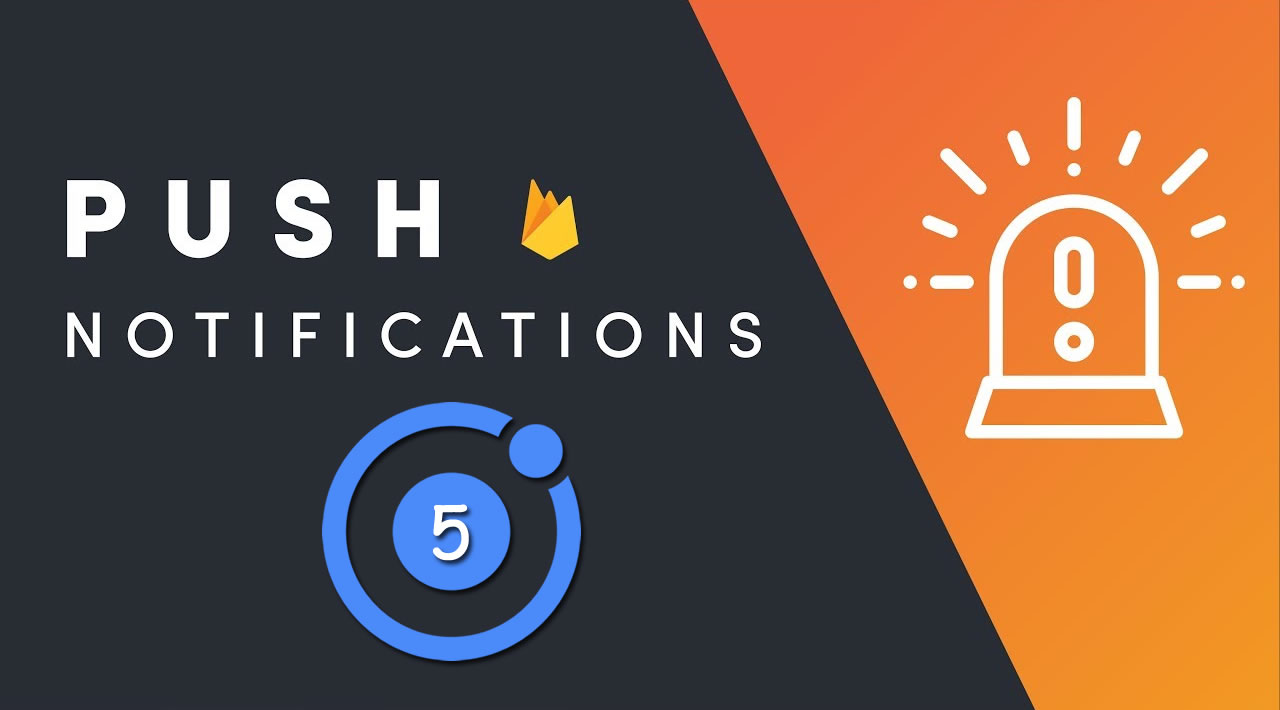
Push Notification using Ionic 5 and Firebase Cloud Messaging
The Local Notifications API provides a way to schedule device notifications locally (i.e. without a server sending push notifications). Install npm install @capacitor/local-notifications npx cap sync Android Android 13 requires a permission check in order to send notifications.

Ionic 4 Local Push Notifications Tutorial YouTube
Handle Push notifications in your app 1. Create a Firebase project and find Push options and create your first project (or use an existing one).

Ionic App with Push Notifications YouTube
In your web app, subscribe to push messaging, making sure you have User IS subscribed in your console, then go to the Application panel in DevTools and under the Service Workers tab click on the Push link under your service worker. Once you've clicked it you should see a notification like this:

Ionic Native Push Notifications + Firebase Cloud Messaging YouTube
Ionic Capacitor Push Notifications Setup. First of all we will create the Ionic app with Capacitor enabled and directly specify our package id which is the ID you usually used within your config with Cordova, and what you use within your iOS Developer Portal and for Android as well. It's basically the unique identifier for your app.

The Complete Guide To Progressive Web Apps with Ionic Framework
Part 1: Set Up Your OneSignal Account Part 2: Push Notification Setup For Android In Ionic + Capacitor (React) This tutorial requires some basic knowledge of React. I'm using the Ionic CLI.

Ionic 7 Firebase FCM Push Notification Tutorial with Example
To test push notifications on iOS, Apple requires that you have a paid Apple Developer account and a physical iOS device. If you are running into issues or your console throws warnings about outdated or deprecated packages, make sure that you're on the latest stable versions of Node, Android Studio, and Xcode.
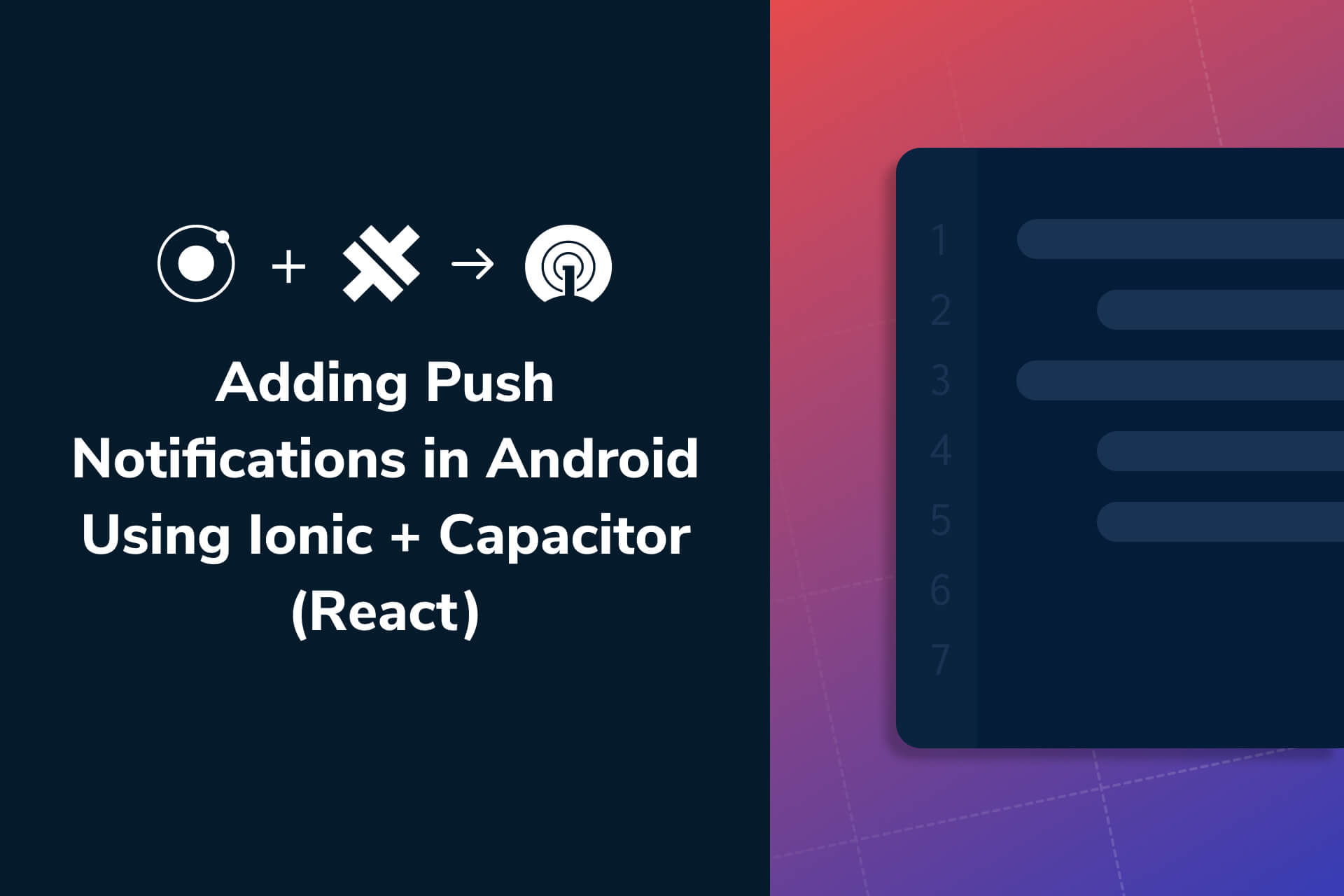
Adding Push Notifications to an Ionic & Capacitor Android App
Here's why: - It's widely adopted and battle hardened from usage across 100,000+ apps - It's free to send an unlimited number of push notifications as long as you have < 1 million users (!!!) registered on your app (after that you have to pay a measly five cents per thousand additional users) - Their plugins and API are insanely easy to use.

Ionic 2 Push Notifications In Detail Devdactic Ionic Tutorials
Test push notifications on iOS 1. Package installation Open your Ionic project in the coding editor of your choice, and open your terminal as well. Navigate to your project's folder. First, we will install all of the required packages. What we need to install: Cordova plugin for firebase: ionic cordova plugin add cordova-plugin-firebase
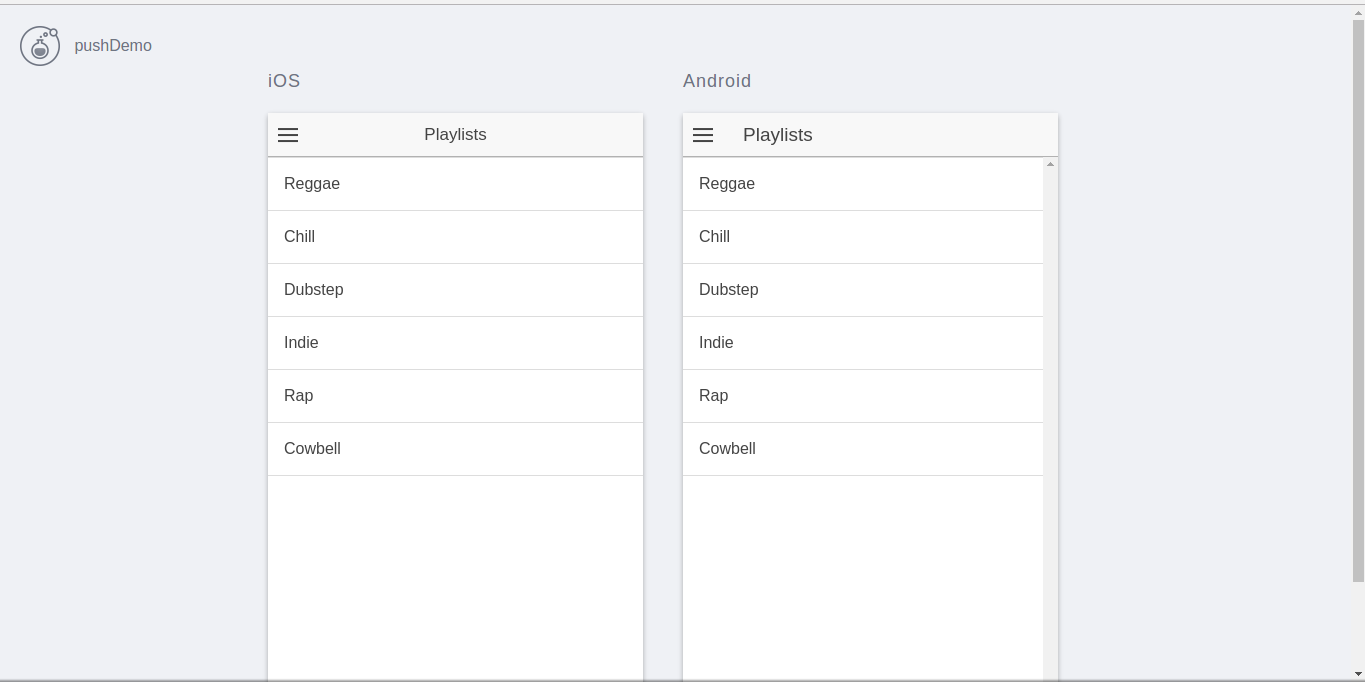
Push Notifications in Your Ionic App with OneSignal SitePoint
Part 1: Set Up Your OneSignal Account To begin, log in to your OneSignal account or create a free account. Then, click on the blue button entitled New App/Website to configure your OneSignal account to fit your app or website. Insert the name of your app or website. Select Web Push as your platform.